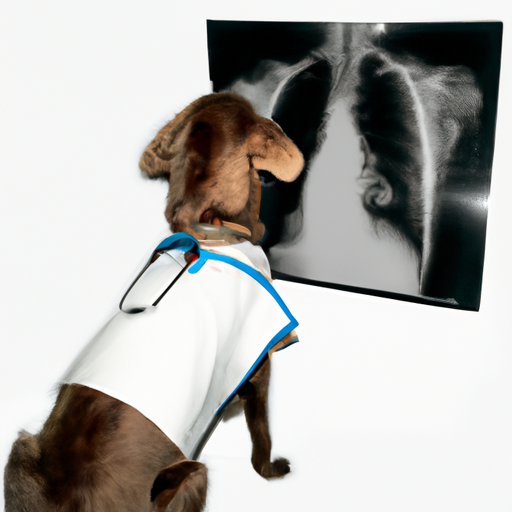Understanding Pneumonia in Dogs
Pneumonia in dogs is a serious condition that requires immediate attention. It’s a respiratory disease which is characterized by an inflammation in the lungs and airways. It can be caused by a variety of factors, including bacterial or viral infections, aspiration (inhaling food, vomit, or liquid into the lungs), or a secondary condition to another disease. As a caregiver, it’s crucial that you understand the causes, symptoms, and treatment of dog pneumonia to ensure your furry friend stays healthy.
Causes of Pneumonia in Dogs
There are several causes of pneumonia in dogs. Here are some of the most common ones:
- Bacterial or viral infections – This is the most common cause of pneumonia in dogs. Bacteria or viruses can enter the lungs and cause inflammation.
- Aspiration – Aspiration, or inhaling foreign substances into the lungs, can cause pneumonia. This can occur if a dog vomits and then inhales, or if it inhales food or water.
- Secondary conditions – Some diseases can weaken a dog’s immune system and make it more susceptible to developing pneumonia.
| Causes | Description |
|---|---|
| Bacterial or Viral Infections | Can enter lungs and cause inflammation |
| Aspiration | Inhalation of foreign substances into lungs |
| Secondary Conditions | Diseases that weaken the immune system |
Symptoms of Pneumonia in Dogs
The symptoms of pneumonia in dogs can vary, but they often include:
- Coughing
- Difficulty breathing or increased breathing rate
- Fever
- Loss of appetite
- Lethargy or decreased energy
- Nasal discharge
As a caregiver, you should always be vigilant for these symptoms. If you observe any of these signs, consult with your vet immediately.
Treating Pneumonia in Dogs
If you suspect your dog has pneumonia, it’s important to seek veterinary care as soon as possible. Treatment will depend on the underlying cause but generally includes antibiotics for bacterial infections, supportive care like oxygen therapy for dogs having difficulty breathing, and fluids for those who are dehydrated. In severe cases, hospitalization may be required.
Preventing Pneumonia in Dogs
Prevention is always better than cure. Some steps you can take to prevent pneumonia in dogs include:
- Regular vaccinations to prevent viral infections
- Good oral hygiene to prevent aspiration pneumonia
- Regular vet check-ups especially if your dog has a condition that could weaken its immune system
Frequently Asked Questions
Q: Can pneumonia in dogs be prevented?
A: Yes, through regular vaccinations, good oral hygiene, and regular vet check-ups.
Q: Is pneumonia in dogs contagious to other dogs?
A: Yes, especially if it’s caused by a bacterial or viral infection.
Q: Can humans get pneumonia from dogs?
A: It’s rare, but possible if the bacteria or virus is zoonotic (transmissible from animals to humans).
Q: How long does it take for a dog to recover from pneumonia?
A: It depends on the severity of the disease, but generally 3-4 weeks with the proper treatment.
Q: What should I do if I suspect my dog has pneumonia?
A: Consult your vet immediately. Prompt treatment is crucial for recovery.



